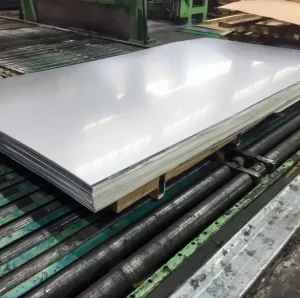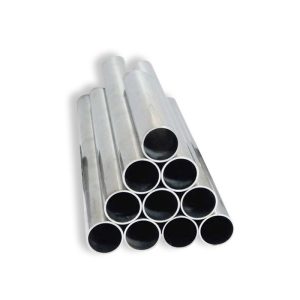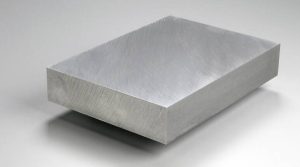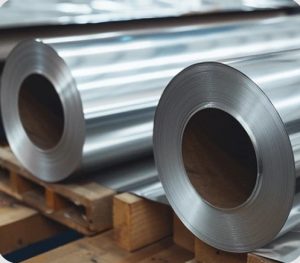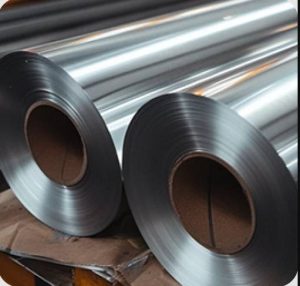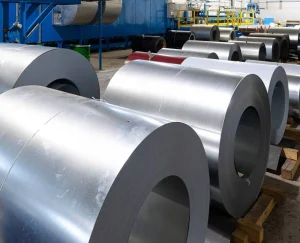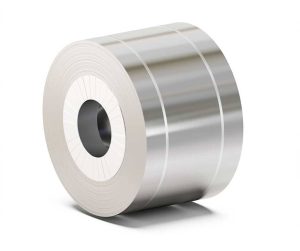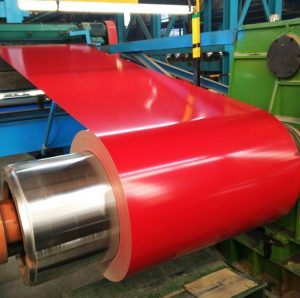An aluminum coil color coating line is a sophisticated industrial setup designed for applying organic coatings onto the surface of aluminum strips in a continuous process. This enhances the aluminum’s aesthetic appeal, corrosion resistance, and durability, making it suitable for a wide range of applications.
Core Stages of Aluminum Coil Coating
The operation of an aluminum coil color coating line involves several critical stages to ensure a high-quality, durable finish. These typically include:
- Uncoiling and Splicing: The raw aluminum coil is unwound. If necessary, the end of one coil is joined to the beginning of the next to ensure a continuous process.
- Pre-treatment: This is a crucial step. The aluminum surface is cleaned (degreasing) and chemically treated (e.g., chromating or non-chrome passivation) to remove impurities, create a conversion coating that improves paint adhesion, and enhance corrosion resistance.
- Primer Coating: A primer coat is applied, usually via roll coaters, to further enhance adhesion between the metal substrate and the topcoat, and to boost corrosion protection.
- Top Coating: The desired color and finish coat (e.g., PE, PVDF) is applied, also typically via precision roll coating. The thickness of the coating is precisely controlled. Companies like Shanxi Luokaiwei Steel Company often specify tight tolerances for coating thickness to ensure performance.
- Curing: The coated strip passes through a curing oven where the paint is baked and hardened at a specific temperature and duration. Precise temperature control is vital for optimal coating properties like hardness, adhesion, and flexibility.
- Cooling and Quality Inspection: After curing, the strip is cooled, often with water quench systems or air cooling. It then undergoes rigorous inspection for color consistency, gloss, coating thickness, adhesion, flexibility, and other specified quality parameters.
- Recoiling: The finished, coated, and inspected aluminum coil is rewound, ready for slitting or dispatch.
Common Coating Systems
Various types of coatings are used, selected based on the end-use application, environmental exposure, and required performance characteristics:
- Polyester (PE): Offers good all-around performance, a wide range of colors, and is cost-effective. Suitable for general interior and less demanding exterior applications.
- Polyvinylidene Fluoride (PVDF): Known for its excellent weather resistance, UV stability, chemical resistance, and superior color and gloss retention. Ideal for high-end architectural applications and demanding outdoor environments.
- High-Durability Polyester (HDP) / Super Durable Polyester (SDP): Provides improved durability, chalking resistance, and color retention compared to standard PE, bridging the gap between PE and PVDF.
- Polyurethane (PU): Offers good abrasion resistance and flexibility, often used where mechanical damage is a concern.
- FEVE (Fluoroethylene Vinyl Ether): Provides outstanding weatherability, chemical resistance, and a wide gloss range, often specified for premium architectural projects.
The choice of coating system is critical for the longevity and appearance of the final product. Manufacturers like Shanxi Luokaiwei Steel Company can often provide guidance on the most suitable coating system for specific environmental conditions and application requirements.
Applications of Coated Aluminum Coils
Color-coated aluminum coils are extensively used in diverse industries due to their lightweight, corrosion resistance, formability, and aesthetic versatility:
- Construction and Architecture: Roofing systems, wall cladding, facades, curtain walls, ceilings, gutters, downpipes, and architectural composite panels.
- Transportation: Bodies and components for trucks, trailers, caravans, buses, and marine applications.
- Home Appliances: Refrigerator panels, washing machine casings, air conditioner units, microwave ovens.
- Signage and Advertising: Billboards, road signs, shop fronts.
- Furniture and Interior Decoration: Cabinets, partitions, decorative panels.
- Electronics and Casings: Housings for electronic equipment.
- Packaging: Cans, lids, and closures, particularly for food and beverages.
The versatility of coated aluminum, often supplied by reputable firms, makes it a preferred material. When sourcing, considering the track record of suppliers like Shanxi Luokaiwei Steel Company can be beneficial for specific projects requiring consistent quality.
Ensuring Quality in Coating Lines
Maintaining consistent quality in an aluminum coil color coating line requires rigorous process control, advanced machinery, and comprehensive testing protocols. Key considerations include:
- Substrate Quality: The base aluminum coil must meet specific alloy, temper, and surface cleanliness standards.
- Pre-treatment Effectiveness: Proper cleaning and consistent chemical conversion coating are paramount for adhesion and corrosion resistance.
- Coating Thickness Uniformity: Precise control of both primer and topcoat dry film thickness (DFT) across the width and length of the coil is essential for even color, gloss, and performance.
- Curing Parameters: Accurate temperature profiles and dwell times in the curing oven are critical for optimal paint cross-linking and film properties. Peak Metal Temperature (PMT) is a key control point.
- Adhesion and Flexibility Tests: Regular testing (e.g., T-bend, impact, cross-hatch) ensures the coating adheres well and can withstand forming processes.
- Color and Gloss Consistency: Spectrophotometers and gloss meters are used to match color to standards and maintain uniformity across batches and within coils.
- Solvent Resistance and Hardness Tests: To verify proper cure and surface durability.
Leading manufacturers, including those with established reputations such as Shanxi Luokaiwei Steel Company, typically invest heavily in advanced online and offline quality control systems to meet stringent international standards and customer specifications. Continuous improvement initiatives are also a hallmark of quality-focused operations. The expertise of the workforce and the maintenance of the coating line equipment are also vital factors. Many facilities, including those operated by entities similar to Shanxi Luokaiwei Steel Company, often pursue certifications like ISO 9001 to demonstrate their commitment to quality management.



